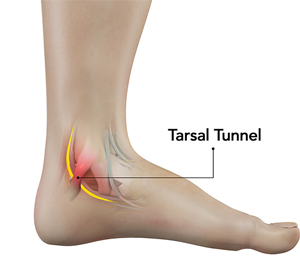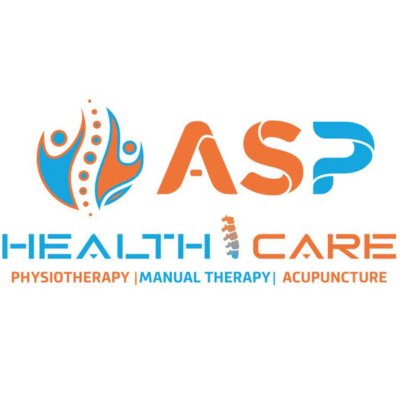+918042757363

This is your website preview.
Currently it only shows your basic business info. Start adding relevant business details such as description, images and products or services to gain your customers attention by using Boost 360 android app / iOS App / web portal.
What is tarsal tunnel syndrome? Tarsal tunnel s...

What is tarsal tunnel syndrome? Tarsal tunnel syndrome (TTS) is a condition that occurs when you have a damaged or compressed tibial nerve. The tibial nerve is a nerve in your ankle. It runs through your tarsal tunnel, a passage in your ankle made up of bones and ligaments. People who have TTS may have pain, tingling, numbness or weakness in their feet. You might develop TTS because of overuse of your foot and ankle. You’re more likely to develop TTS if you exercise strenuously or frequently, especially if you have a very flat foot. Symptoms and Causes What causes tarsal tunnel syndrome? Tarsal tunnel syndrome occurs when something damages your tibial nerve. Causes of tibial nerve damage can include: Flat feet. High arches. Injuries, such as an ankle sprain or fracture. Irregular growths, such as ganglion cysts, bone spurs or varicose veins. Masses such as lipomas or tumors near your tibial nerve. Body-wide (systemic) conditions, such as hypothyroidism, diabetes or arthritis. What are the symptoms of tarsal tunnel syndrome? Tarsal tunnel syndrome causes signs of nerve pain. TTS usually causes pain in the inside of your ankle or the bottom of your feet. You may also experience: Burning sensations. Numbness. Tingling or “pins and needles” sensations. Weakness in your foot muscles. ADVERTISEMENT Management and Treatment How do you treat tarsal tunnel syndrome? Many people can manage tarsal tunnel syndrome symptoms with at-home or over-the-counter treatments. You might try: Rest: Staying off of your foot for a few days or weeks can promote healing and prevent further injury. Ice: Use ice packs for up to 20 minutes, a few times a day. Icing your foot can reduce swelling and pain. Compression and elevation: You may wear a supportive elastic bandage or brace around your ankle. Elevating your foot above your heart whenever possible can reduce inflammation. Nonsteroidal anti-inflammatory medications (NSAIDs): Over-the-counter NSAIDs such as ibuprofen may decrease pain and inflammation. Your healthcare provider may also recommend nonsurgical treatments such as: Braces, casts or splints: A cast or splint keeps your foot in place to encourage nerve healing. If you have flat feet or severe symptoms, your healthcare provider may recommend a brace to reduce pressure on your feet. Orthotics: You may use custom-made shoe inserts (orthotics). Orthotics can help your foot maintain a proper arch. This position reduces the movements that cause nerve compression. A stability or motion-controlled shoe also keeps your foot from rolling inward (pronation) and reduces tension on your nerve. Physical therapy: A physical therapist prescribes exercises and stretches to improve your strength and range of motion. We ASP Healthcare is one of the best physiotherapy and rehabilitation centre in chennai. #www.asphealthcare.in #handpain #wristpain #rehabcentre #bestphysio #bestchiropractic #bestacupuncture #osteopathic #ambattur #avadi #thirumullaivoyal #mugppair #annanagar #kallikuppam #9941424372 #8072603014

